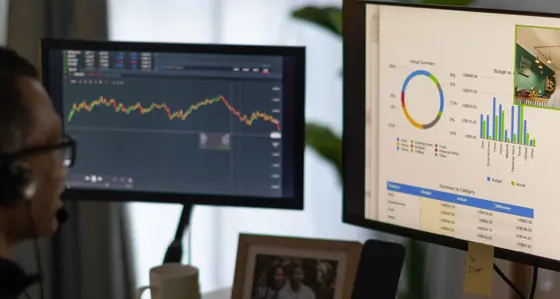
Part 3: Exploring the lending gender bias - the role of Venture Capital
29 April 2020
The third instalment in our lending gender bias series is ready for you. This series continues to explore the reasons for the lack of funding available to female led business.
Approximately six months ago we launched our first video (below) in the lending gender bias series, dedicated to the Alison Rose Review, a report highlighting the discrepancy in funding received by female companies compared to male counterparts. We noted the barriers to female entrepreneurs achieving greater levels of funding, but also highlighted the opportunities identified in the report and the societal and economic benefits that would come from increasing the volume of female-led businesses in the UK.
Since then, I was fortunate enough to interview Sam Seaton, the Founder and CEO of MoneyHub (below). It was really interesting to hear her views on the report and the market generally, as well as to hear about her experience of trying to get funding as the female of a FinTech.
Over the past six months, the issue of gender parity in funding has continued to be discussed and there does appear to have been positive change in the market: in January this year, under the leadership of Alison Rose, RBS launched £1bn of funding specifically for female entrepreneurs. Their aspiration is to create at least 50,000 new businesses by 2023. In March of this year, Goldman Sachs reported that their Launch with GS initiative has deployed over $230mn of funds globally to businesses with diverse leadership since inception in June 2018. This initiative is also open to US-based Black and Latinx founders which is brilliant to see, as it is not only female-led businesses that are under-represented in this area.
More examples of positive change can be found in the third video of our lending gender bias series. Here I interview Julia Rabin of Diversity VC and Claire Palmer of Silicon Valley Bank’s Emerging Venture Capital Practice. Our discussion focuses on the make-up of VC firms and what impact this may have on the ways in which they invest. We also consider the importance of inclusivity to create and foster a diverse culture within the venture capital firms themselves as well as in the companies they invest in.
Below is the whole Lending Gender Bias series, including shortened highlight versions of Parts 2 and 3, as well as links to the full length recordings for those who want to hear the conversations in full. I hope you enjoy!
Part 3: The role of Venture Capital (with Julia Rabin and Claire Palmer):
The full Part 3 interview is available here
Part 1: The Alison Rose Review:
Part 2: Working with Entrepreneurs (with Sam Seaton):
The full Part 2 interview is available here
Note that these videos were recorded prior to social distancing measures being in place.
Related Insights

Navigating sustainable retrofit in real estate
Achieving successful sustainable retrofitting in real estate can seem like a complex challenge. Discover how your organisation can unlock the strategic value of retrofitting with our new report, commissioned by Barclays and in collaboration with JLL, Travis Perkins and TrustMark.
Read more
Typify™ - more accurately detecting Financial Crime
Typify, Baringa's investigation and analytics product, creates a fit for purpose solution that is easy to use and implement.
Read more
An introduction to Typify™
Typify™accurately pinpoints the atypical by combining an understanding of typical customer and peer group behaviour with insight from financial crime experts. This enables financial institutions to manage financial crime effectively and efficiently, reducing the need for large and expensive teams of investigators.
Read more
Typify™ - financial crime typologies identified
Transaction monitoring is key to detecting suspicious financial activity. However, this is not 100% accurate. Baringa’s Typify offers a tailored solution.
Read moreIs digital and AI delivering what your business needs?
Digital and AI can solve your toughest challenges and elevate your business performance. But success isn’t always straightforward. Where can you unlock opportunity? And what does it take to set the foundation for lasting success?